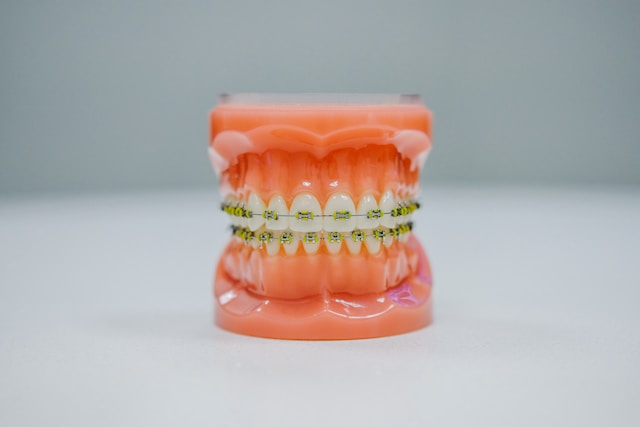Answering Common Questions About Orthodontic Treatment
Braces are a tried-and-true method for achieving a straighter, healthier smile, but they often come with questions and uncertainties for those considering orthodontic treatment. At Carter Orthodontics, we understand the importance of addressing these common queries to help patients feel informed and confident in their decision to pursue braces. Let’s delve into some of the most frequently asked questions about braces and provide clarity on what to expect during your orthodontic journey.
1. How do braces work?
Braces work by applying continuous pressure to gradually shift teeth into their desired position over time. The braces consist of brackets bonded to the teeth and wires that exert gentle pressure to guide the teeth into alignment. With regular adjustments, braces effectively straighten teeth and correct various orthodontic issues.
2. What orthodontic problems can braces fix?
Braces can address a wide range of orthodontic issues, including crooked teeth, overcrowding, gaps between teeth, overbites, underbites, and misaligned jaws. Whether you have minor cosmetic concerns or more complex bite problems, braces offer a versatile solution for achieving a straighter, healthier smile.
3. Are braces only for children and teenagers?
While braces are commonly associated with adolescence, they can benefit individuals of all ages. Many adults choose to undergo orthodontic treatment to improve the alignment of their teeth, enhance their smile’s appearance, and address oral health concerns. With advancements in orthodontic technology, adults can discreetly and comfortably straighten their teeth with options like clear braces or Invisalign.
4. How long will I need to wear braces?
The duration of orthodontic treatment with braces varies depending on several factors, including the severity of your orthodontic issues, your age, and your body’s response to treatment. On average, treatment with traditional braces typically lasts between 18 to 36 months. During your initial consultation, your orthodontist will provide a personalized treatment plan outlining the estimated duration of your treatment based on your specific needs.
5. Will getting braces be painful?
While you may experience some discomfort or soreness initially and after adjustments, braces are not typically painful. Any discomfort is usually mild and temporary as your mouth adjusts to the pressure exerted by the braces. Over-the-counter pain relievers and orthodontic wax can help alleviate any discomfort, and your orthodontist will provide guidance on managing any discomfort throughout your treatment.
6. How often will I need to visit the orthodontist for adjustments?
Patients with braces typically require adjustments every 4 to 6 weeks to ensure the teeth are moving according to the treatment plan. During these appointments, your orthodontist will make necessary adjustments to the wires and brackets to continue guiding your teeth into alignment. Regular visits are essential for monitoring progress and making any necessary modifications to your treatment plan.
7. Can I still eat my favorite foods with braces?
While some dietary adjustments may be necessary to protect your braces and prevent damage, you can still enjoy most of your favorite foods during orthodontic treatment. It’s essential to avoid sticky, hard, or chewy foods that can damage your braces or bend wires. Your orthodontist will provide dietary guidelines and recommendations to help you navigate your orthodontic journey without sacrificing your favorite treats.
8. How do I maintain good oral hygiene with braces?
Maintaining excellent oral hygiene is crucial for the success of your orthodontic treatment and overall oral health. Brushing and flossing become even more important with braces to remove food particles and plaque that can accumulate around brackets and wires. Your orthodontist will provide guidance on proper oral hygiene practices and may recommend additional tools such as interdental brushes or floss threaders to help you keep your teeth and braces clean.
9. Will I need to wear a retainer after braces?
Yes, wearing a retainer after braces is essential to maintain the results of your orthodontic treatment and prevent your teeth from shifting back to their original position. Your orthodontist will design a custom retainer for you to wear after braces, and they will provide instructions on how often to wear it and how to care for it properly. Consistent retainer wear is crucial for preserving your newly aligned smile for years to come.
10. What are my options if I want a more discreet treatment?
If you’re concerned about the visibility of traditional metal braces, there are several discreet orthodontic options available. Clear braces use tooth-colored or transparent brackets and wires to blend in with your teeth, offering a less noticeable alternative to metal braces. Additionally, Invisalign utilizes clear aligners that are virtually invisible when worn, allowing you to straighten your teeth discreetly and comfortably.
Navigating the world of braces can feel overwhelming, but understanding the basics and having your questions answered can alleviate any concerns and set you on the path to a straighter, healthier smile. At Carter Orthodontics, we’re here to guide you through every step of your orthodontic journey and provide personalized care that meets your needs and exceeds your expectations. If you have any additional questions or are ready to schedule a consultation, don’t hesitate to contact us. Your journey to a confident smile starts here!
Photo by Kenny Eliason on Unsplash




